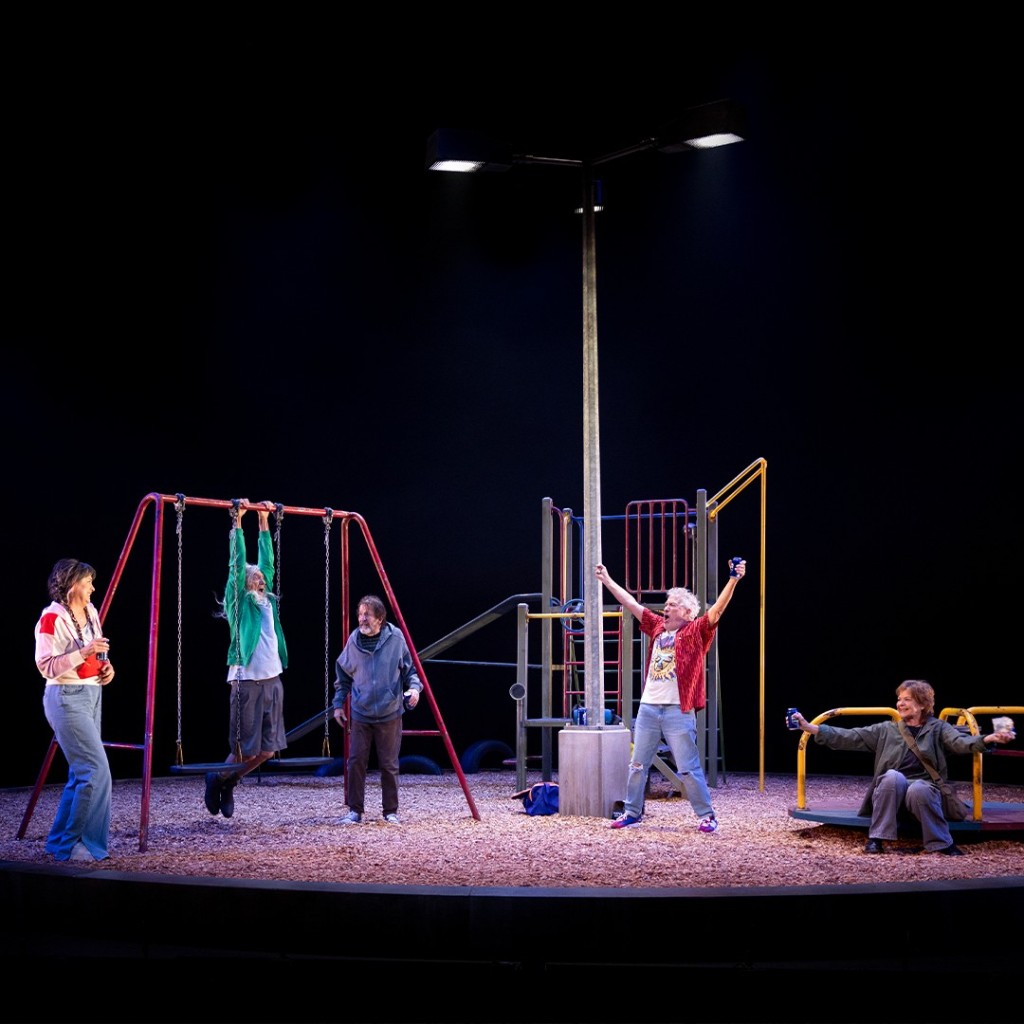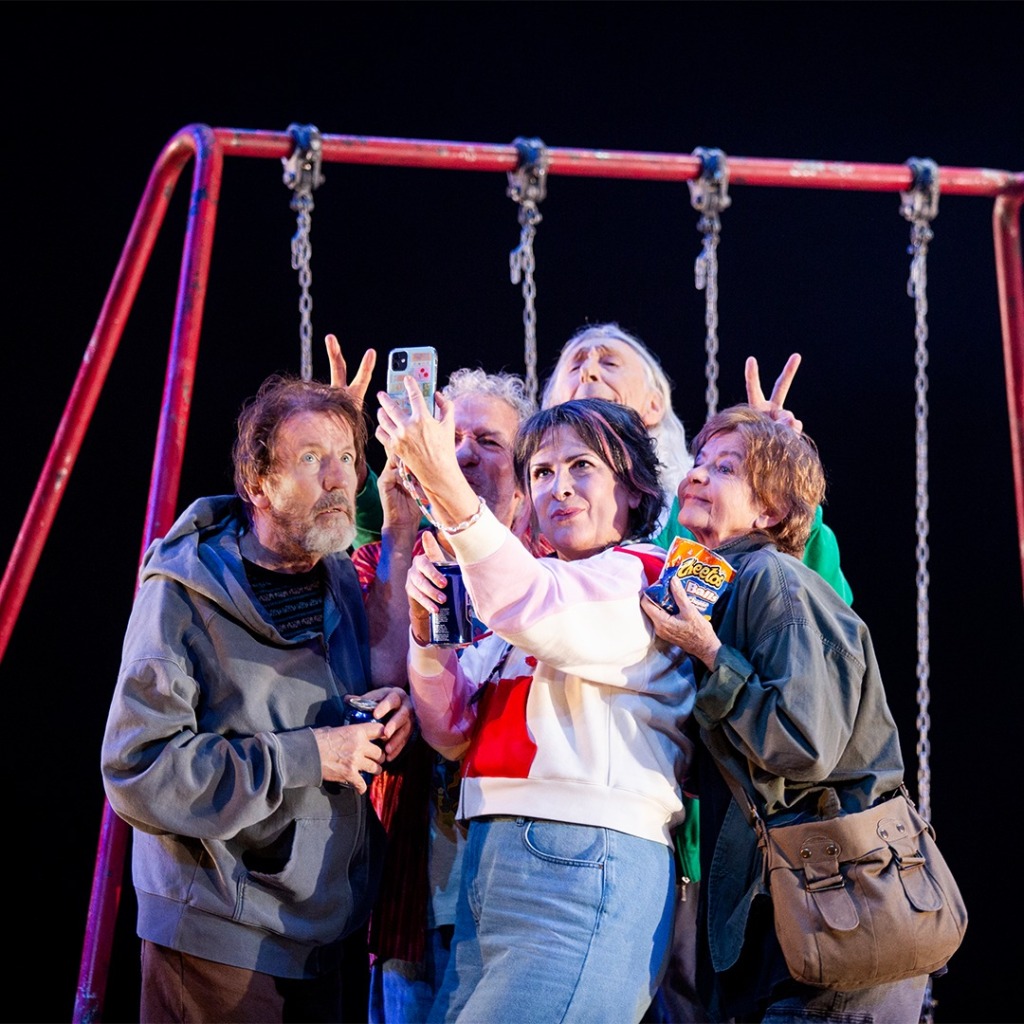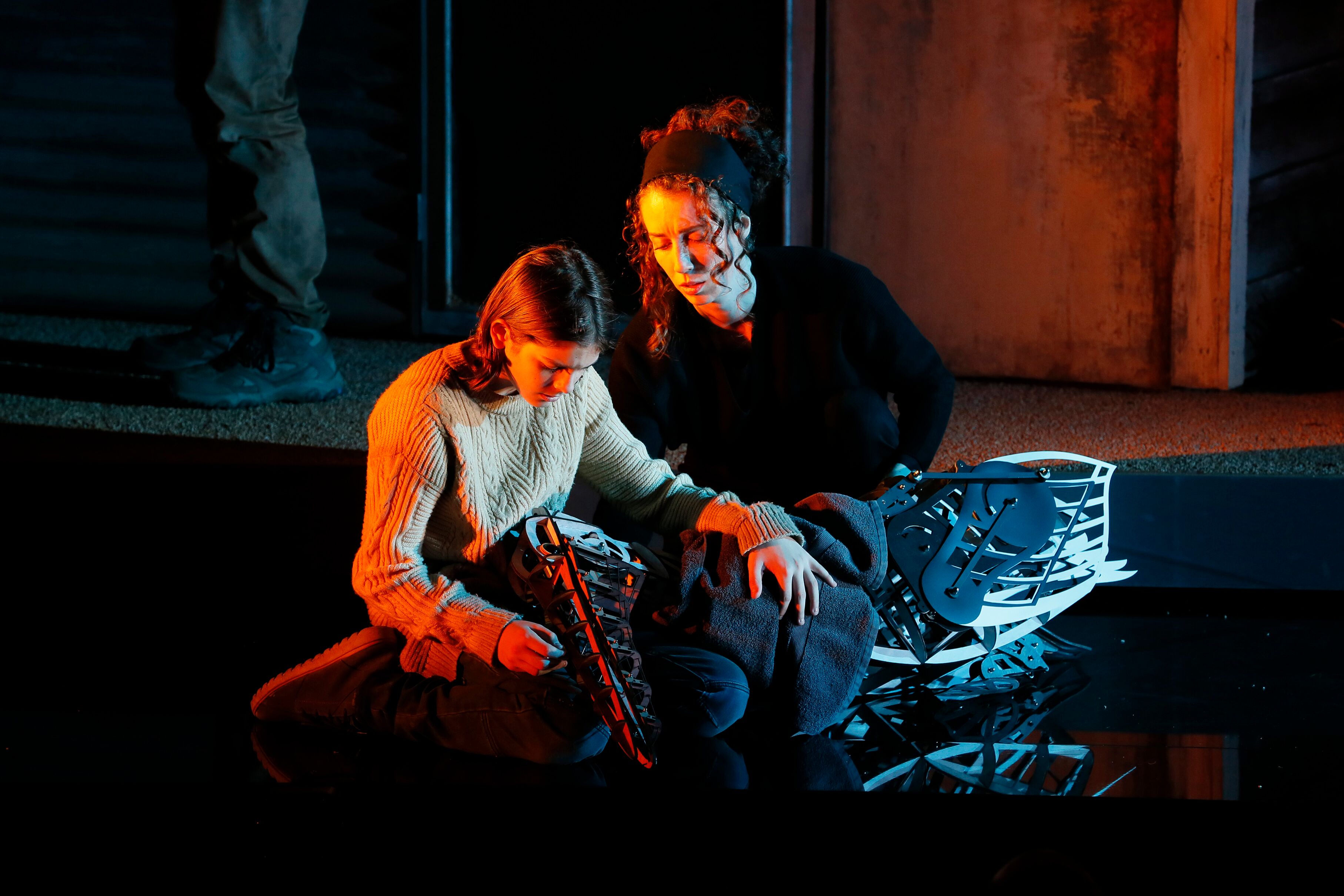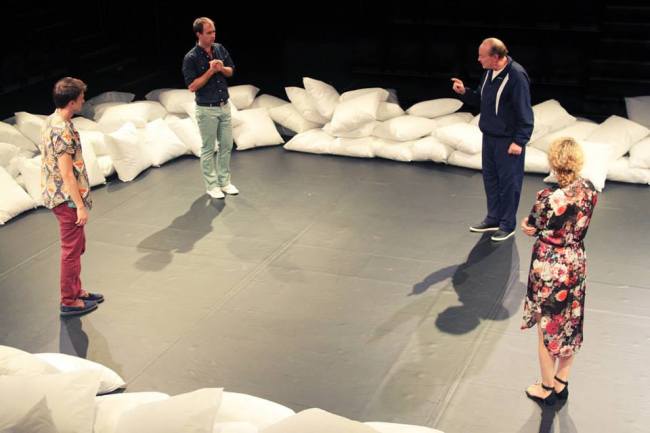Seventeen (Melbourne Theatre Company)
Melbourne Theatre Company, Southbank Theatre
January 15 – February 17

“Bloody fantastic,” was the overheard and very accurate audience summation of experience of Melbourne Theatre Company’s “Seventeen”, Australian playwright Matthew Whittet’s 95-minute (no interval) exploration of adolescence and associated drama of growing up and letting go. The production is, indeed, quite the joy in its unconventional tell of six teenagers on the cusp of real-life beginnings, celebrating a shared rite of passage. The last day of school for Mike, girlfriend Jess, best mate Tom, Jess’s bestie Emelia and outsider Ronny is a time for end-of-an-era celebration and perhaps university anticipation, if Mike’s annoying little (almost 15-year-old) sister Lizzy would go away and leave them to their night of drinking in the children’s playground of their youth.
It seems like a straightforward snapshot-in-time narrative, however, the work operates on many levels as the 17-year-old protagonists are played by veteran actors decades older, even, in some cases, into their 70s. Although their stories are told through the lens of this modern era’s TikTok dancing, a bangin’ Olivia Rodrigo and Big Bosse Vette type soundtrack and photos ‘for the ‘gram’, their old school lack of savvy, ‘best night ever’ drinking and pashing in the park and truth-or-dare type games, bring a sense of nostalgia of one’s own ‘pretty much almost an adult’ ‘no more school ever again’ era and attempt to remember how our own long-term circles of friends all first met and even became friends in the first place (“just lucky, I guess”).
This group of friends is comprised of a number of very different characters, all brought to vivid life by the ensemble cast of legendary stars of the stage and screen. Richard Piper, Pamela Rabe, Robert Menzies, Genevieve Picot, George Shevtsov and even Fiona Choi as little sister Lizzy, effectively capture the precarious balance between the excitement and apprehension of the precarious bridge between the comfort of childhood and anxiety of being an adult with only increased responsibility despite not always knowing what you want from life yet. We see this, particularly in Rabe’s finely tuned take on about-to-turn-eighteen Jess, who feels trapped by what she can seem coming in terms of familial obligations at the expense of her desire to travel.
Whittet’s cleverness comes from the duality that permeates so much of the script and Matt Edgerton’s direction is considered so as to allow space for this. Narrative elements that seem so natural to the scenario serve as bigger-picture provocations to the audience as the group discuss what they will miss the most and time travel to Year Seven letters to themselves contextualises things for characters and audience members alike in contemplation of the blink of time’s passage.
It’s not all nostalgia though; as each character’s story is pieced together, there is touch on social issues of masculinity, domestic violence, homelessness and alike, which, along with poignant late monologue reminder of everyone’s life passing by, adds light and shade to what could easily have been a story of just fluff and frivolity. Paul Jackson’s lighting design also serves this, supporting our quiet into monologues of honest vulnerability, particularly from the male characters, making the show’s contemplative and eventually allegorical dawn-break conclusion all the more moving. And the combination of a revolve stage and effective blocking of the action around the playground means that there is always somewhere to look, regardless of what might be happening centre-stage.
“Seventeen” is a charming, playful, evocative and ultimately poignant reminder of the inner teen and associated feeling of freedom within us all. It is filled with humour in the hyperbolic insults and ill-informed logic of youthful confidence, but also connection to its characters and their potential, leaving us yearning for a sequel to see how their futures unfold them and if Jess indeed ever makes it to South America.
Photos c/o – Pia Johnson










